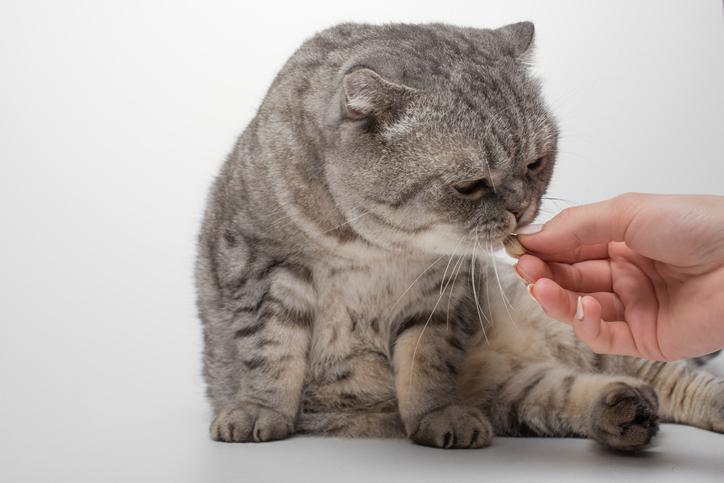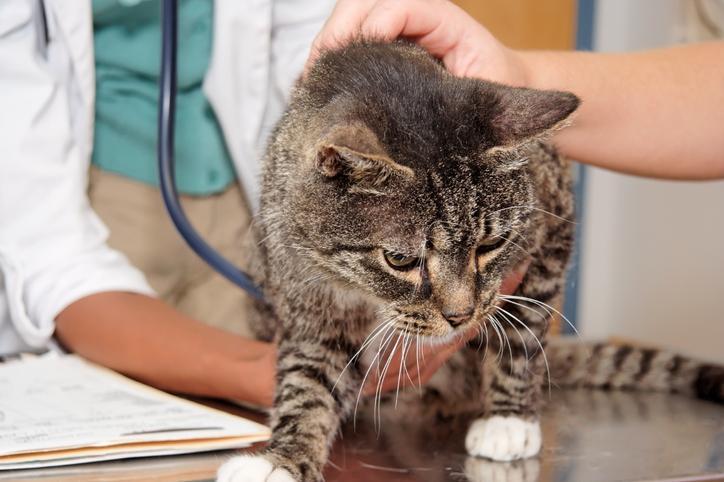What Is the Prednisone Dosage for Cats?



See files for Cats
Prednisone is a drug which is commonly used in human medicine. While it is also used in veterinary clinic, it is less often used to treat cats than it is dogs. The reason for this is because it is a prodrug which needs to be converted in the body before it can activate and become useful. Once this occurs, it will present in its active form known as prednisolone. Cats have a reduced ability to make this conversion, meaning they are more often prescribed prednisolone directly. Its action is an immune suppressant, being used in various immune-mediated diseases.
At AnimalWised, we ask what is the prednisone dosage for cats? While we can provide guidelines for its use, you should only use prednisone by following direct instruction from the veterinarian. This way we can best avoid negative side effects or contraindications.
What is prednisone for cats?
Prednisone is a glucocorticoid, a class of synthetic corticosteroid which helps the body to break down glucose. It also works on the immune system to suppress or decrease inflammation. Prednisolone is the biologically active form of prednisone. This means that for prednisone to take effect, it has to first become prednisolone. This process happens in the liver. If prednisolone is administered, it is absorbed directly.
In veterinary medicine, the two substances of prednisone and prednisolone have minimal differences in their chemical composition. Both have the same effects, so they can often be used interchangeably. However, cats are less able to break down prednisone into its active form due to a lack of suitable enzymes to do so in the liver.
Dogs and humans have more of these enzymes, meaning they will be more likely prescribed prednisone than cats. This is because it is more stable and less likely to degrade than prednisolone. This also provides greater therapeutic control, resulting in more consistent immunosuppressive effects over time. Since cats have a weakened ability to metabolize prednisone in the liver, the biologically active prednisolone is often preferred.
Is prednisone safe for cats?
Yes, prednisone is safe for cats. It should only be given under prescription from a veterinarian. In part due to its bioavailability, it is usually prescribed in small doses to reduce possible side effects. Since cats need to convert prednisone in the live, your vet may prefer the active prednisolone over prednisone. This is especially so if the cat already has liver failure or other problems. Always consult the vet before giving your cat either of these drugs.
What is prednisone used for in cats?
Prednisone is mainly used as an immunosuppressant in cats. This means it works to counteract the immune system's inflammatory reaction to different acute and chronic diseases. Suppressing the immune system may not sound like a good thing, but in fact it means that prednisone is useful in treating autoimmune diseases in cats, such as autoimmune hemolytic anemia (AIHA).
Prednisone is also used to treat external swelling and allergies in cats which can result in anaphylactic shock. It can also be prescribed to control internal inflammatory processes caused by various diseases.
Both prednisone and prednisolone is usually for prescribed short-term relief, but may also be given longer-term for cats suffering from chronic diseases. In such cases, rather the disease is treated successfully, prednisone acts as a steroid treatment that helps control symptoms and reduce pain or discomfort. This means that it is often prescribed along with other medications. Prednisone is also know to help cats with cancers such as lymphoma. It may be prescribed alone or together with other treatment options as chemotherapy.
What is the prednisone dosage for cats?
Prednisolone for cats should only be prescribed by a veterinarian. It can be administered in various different preparations:
- Oral suspension
- Tablets
- Injectable solution
- Topical ointment
The oral method is the easiest and most comfortable way to give a cat prednisone, as you can do this at home yourself. It is usually given at night, but your vet will give you specific instructions. Tablets can be broken up and mixed with food or hidden in a treat.
The dosage of prednisone for your cat can only be determined by a vet as it will be tailored to each cat's specific needs. The duration of the treatment will also depend on this professional assessment. Studies carried out suggest dosages of prednisone for cats that range from 0.5 mg to 4 mg per day per kilogram of the cat's weight. Of course, these are only general parameters. The veterinarian will choose the most appropriate dose for your cat.
When prednisone or prednisolone is used for long-term treatment in cats, a minimum dose is usually recommended. This is to reduce the possible side effects, while still treating the disease effectively. Increasing or decreasing in a cat's prednisone dosage should only be carried out as and when prescribed by a veterinarian.
The disease being treated will be an important determinant in the dosage of prednisone for cats. Take a look at a disease which required corticosteroid treatment with our article on autoimmune skin disease in cats.

Side effects of prednisone for cats
Normally, if prednisone is used only when needed and following a professional's instructions, it should have no severe adverse effects on your cat. However, prolonged treatment with prednisone can have possible side effects. Here are some of the most common side effects associated with long-term prednisone use in cats:
- Frequent urination
- Increased food and water intake
- Mood changes
- Gastrointestinal ulcers
- Diabetes
- Pancreatitis
- Delayed healing of wounds
- Cushing's syndrome
Due to the way prednisone acts on the adrenal glands, suddenly stopping the treatment could cause adrenal failure in the cat. For this reason, it is recommended to only gradually withdraw prednisone following long-term treatment.
Learn more about the symptoms and treatment of diabetes in cats with our related article.

Prednisone for cats contraindications
As we explained, prednisone has an immunosuppressive effect, which means it can interfere with a cat's immune system and resistance to disease. Therefore, prednisone/prednisolone should be avoided or used with caution in cats with the following conditions:
- Advanced age
- Malnutrition
- Hypertension
- Viral or fungal diseases
- Diabetes
- Cushing's syndrome
- Heart or kidney problems
- Gastrointestinal ulcers
- Glaucoma or corneal ulcers
In addition, a cat receiving prednisone treatment should not be vaccinated while taking the drug or for two weeks after the treatment is stopped. Pregnant or lactating cats should not be given prednisone as it can cause fetal malformation, abortion or premature births. It is also not advised for female cats during breastfeeding.
As always, prednisone or prednisolone for cats should only be used following professional guidance and under strict veterinary control.
This article is purely informative. AnimalWised does not have the authority to prescribe any veterinary treatment or create a diagnosis. We invite you to take your pet to the veterinarian if they are suffering from any condition or pain.
If you want to read similar articles to What Is the Prednisone Dosage for Cats?, we recommend you visit our Medicine category.
- González, J.L., Moral, Y., Domínguez, S., & Agredano, L. (2015). Therapeutic approach to skin autoimmune diseases in dogs and cats. Veterinary Portal.







